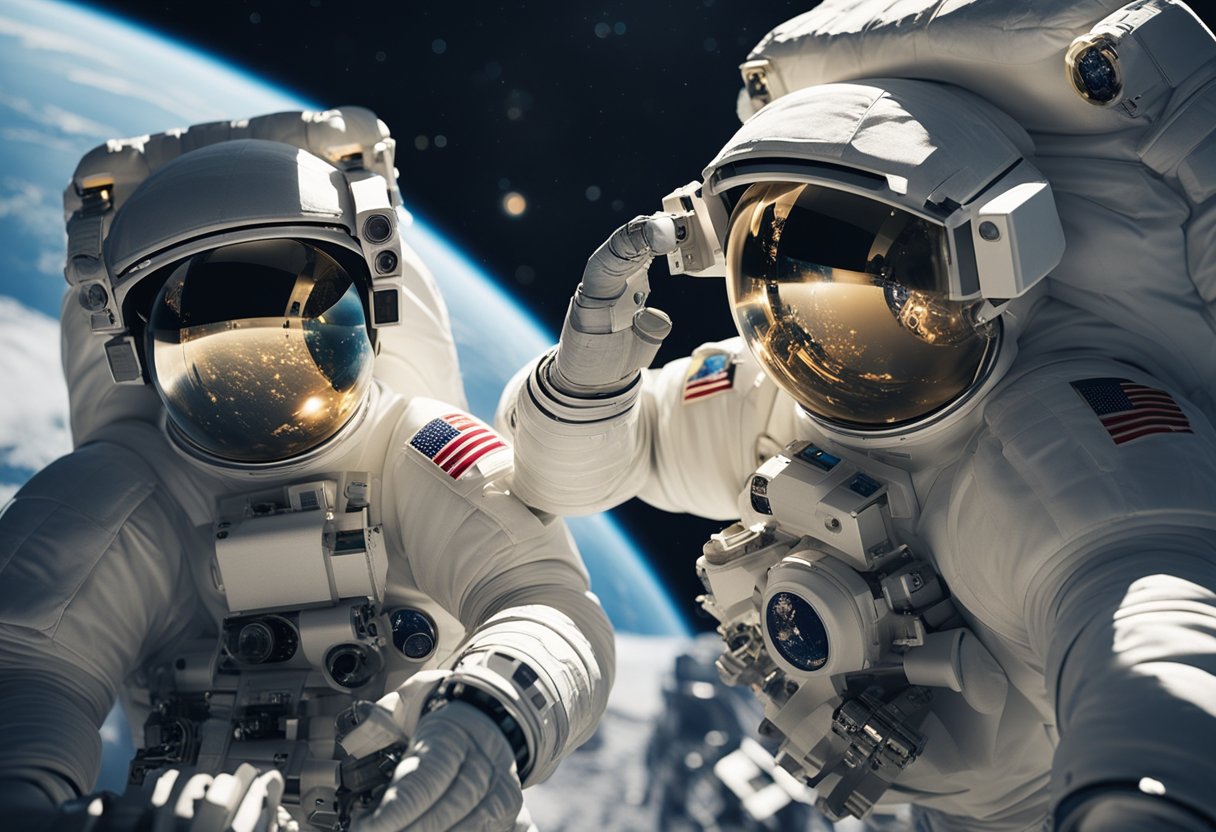
As we venture into the realm of human spaceflight, we find ourselves confronted with unique cultural challenges. The transition from Earth to the microgravity environment of space demands not only physical but also psychological adjustments. Within the confines of spacecraft like the International Space Station, astronauts experience a melting pot of cultures, with each individual having to adapt their own norms and practices to work harmoniously with colleagues from around the globe.
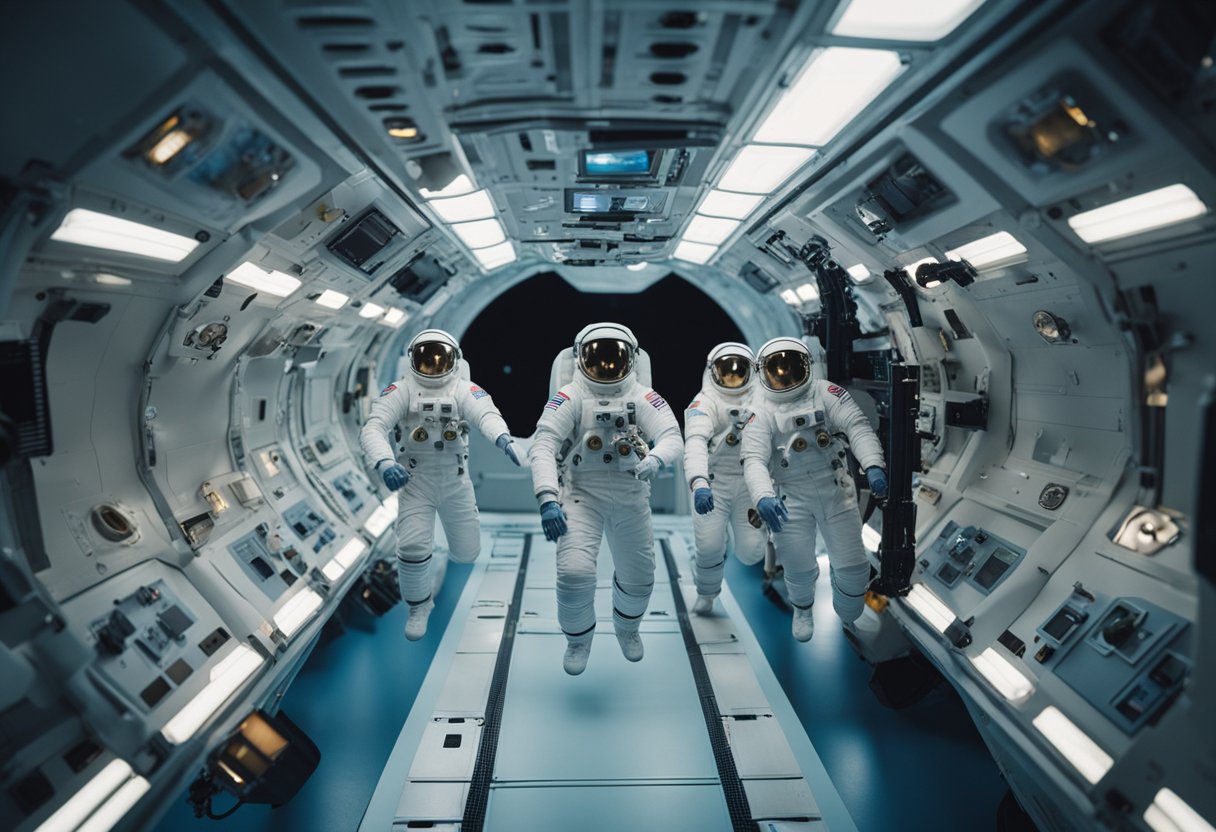
At the heart of these adaptations lies the necessity to overcome both the psychological aspects of space travel and the physical effects of long-term spaceflight. With the burgeoning industry of space tourism, these cultural and interpersonal dynamics are no longer restricted to astronaut crews. As companies like SpaceVoyageVentures.com pave the way for commercial space travel, a broader spectrum of society must be prepared for the economic implications and the profound shift in outlook that accompanies the journey beyond our planet.
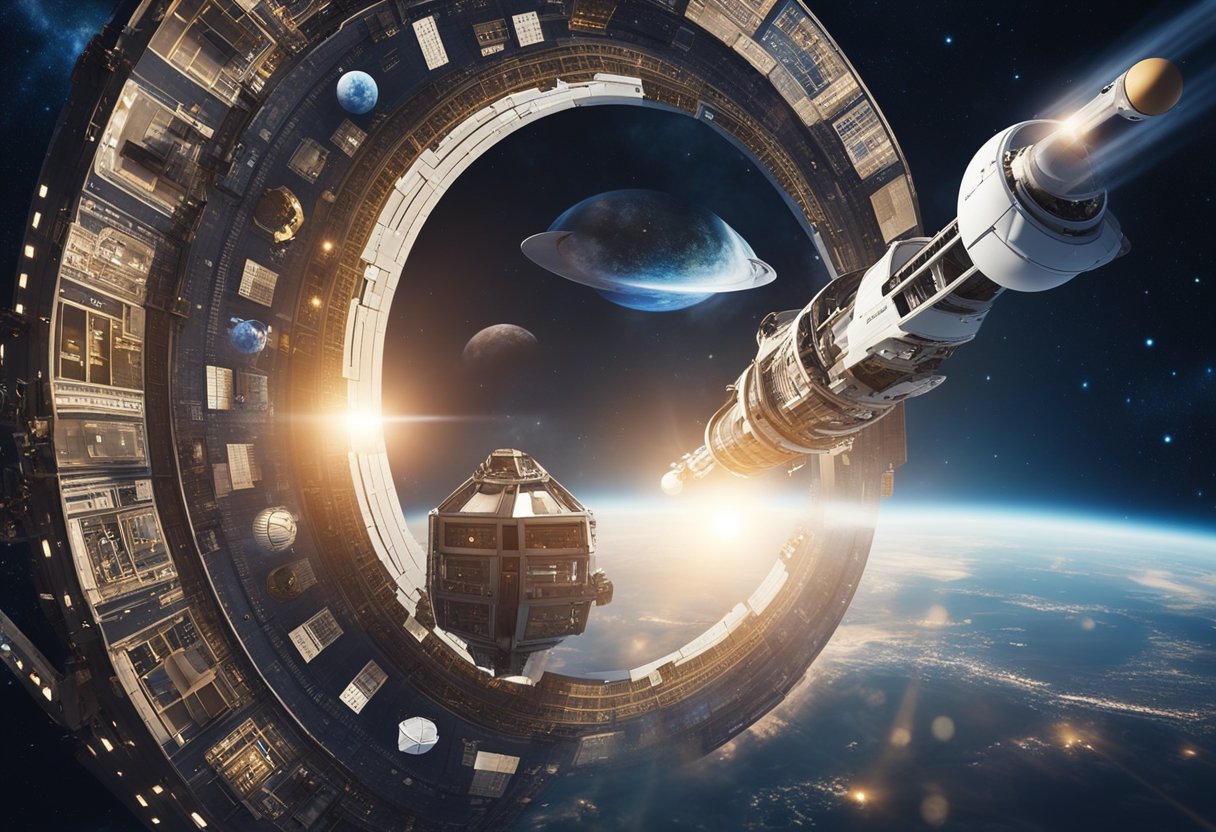
In examining the progression of human spaceflight, we trace a journey from preliminary ventures above our atmosphere to proposals for interplanetary travel. Here, we explore pivotal achievements, the pivotal roles of various government entities like NASA, and the burgeoning impact of private operators such as SpaceX and Virgin Galactic.
Space exploration has seen a cascade of achievements that have redefined our place in the universe. The first manned spaceflight by Yuri Gagarin in 1961 was a watershed moment, signifying the commencement of human exploration beyond Earth. Subsequently, NASA’s Apollo missions, particularly Apollo 11 in 1969, carried humans to the lunar surface, marking a monumental stride in space exploration. The Space Shuttle programme, initiated in 1981, introduced reusable spacecraft, fostering greater frequency and diversity in missions.
Government agencies, spearheaded by NASA, have been at the forefront of space exploration’s evolution. These organisations have developed not only technology but also human resources for space travel. Their enduring research has paved the path for our understanding of the bodily adaptations required in a zero-gravity environment and has developed measures for protecting astronauts on extended missions, such as those to the International Space Station and future endeavours under the Artemis programme.
The emergence of private sector players has accelerated space exploration. Companies like SpaceX and Virgin Galactic have introduced new prospects for not only governments but also private individuals to engage in space travel. SpaceX’s groundbreaking work with the Falcon rockets and the Dragon spacecraft has drastically decreased the costs of reaching orbit, while Virgin Galactic is harnessing the thrill of space for tourism, documented at portals such as SpaceVoyageVentures.com, which charts the course for civilian journeys into space. These developments suggest a more inclusive future in space exploration, making off-planet travel more accessible to non-astronauts.
As we journey beyond our planet, cultural evolutions are inevitable. The fabric of human interaction and norms—our culture—is poised to transform in response to the unique environment of space.
Space presents an entirely new frontier, demanding its own space culture that not only encompasses the scientific and technological aspects but also considers the social and cultural nuances specific to life in space. We’re not simply carrying our terrestrial habits into orbit; we’re set to develop new customs, norms, and social constructs that are adaptive to the off-Earth environment. For instance, rituals around food consumption and recreation in microgravity are examples of where we’ll see the early stages of a distinct space culture forming.
The process of acculturation—adapting to and adopting a new culture—is complex, particularly in the confined and isolated settings of a spacecraft or space habitat. We must be prepared to face challenges such as group cohesion, communication barriers, and the integration of diverse cultural values from the multinational crews that space travel inevitably involves. This adjustment is critical not just for psychological well-being but for mission success as well.
As we establish a presence in space, through platforms like SpaceVoyageVentures.com, promoting intercultural competence among astronauts and space tourists becomes a cornerstone in ensuring that space exploration and habitation efforts are sustainable and enriching experiences.
The journey beyond Earth’s atmosphere brings unique psychological challenges. We’ll address how astronauts cope with isolation, the importance of leadership and group dynamics, and strategies for managing stress in the confined quarters of a spacecraft.
Encounters with isolation in space can significantly impact an astronaut’s psychological well-being. The vast distance from Earth and its inherent detachment necessitate robust psychological support systems and coping mechanisms. Astronauts rely on communications with mission control and loved ones to maintain mental health. Preparing for the disconnection and finding ways to simulate earthly normalcy is crucial for their safety.
Effective leadership within a space crew is pivotal to their success and safety. A good leader ensures clear communication, fosters a team environment, and addresses conflicts effectively. We acknowledge that group dynamics in space require flexibility and adaptability, with everyone understanding and playing their role. Structured support and defined roles benefit the team’s cohesion and performance.
Managing stress in the confined spaces of a spacecraft is essential. Stress can lead to reduced cognitive function and relational tensions, threatening both the well-being of the crew and mission objectives. We utilise strategies including regular physical exercise, structured schedules, and recreational activities to combat stress. Acknowledging each individual’s personal needs contributes to a sense of normalcy and overall mission safety.
The psychological aspects of space travel are complex but manageable with careful preparation and support, with safety always at the forefront of our endeavours.
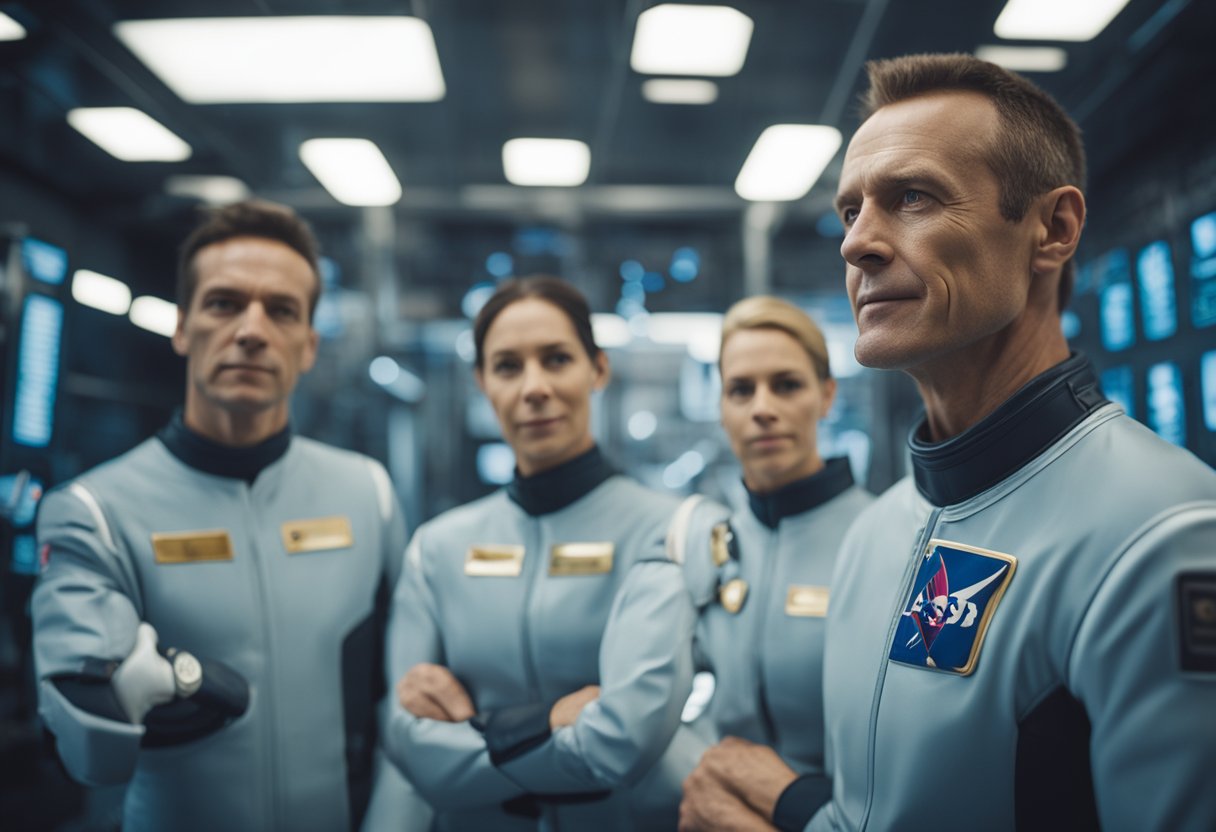
Understanding the physical effects of long-term spaceflight is crucial for our preparation for future missions. The challenges our bodies face in space are quite distinct from those on Earth.
In the microgravity of space, we experience weightlessness, which significantly impacts our musculoskeletal system. The absence of gravity leads to muscle atrophy and bone demineralisation. Studies on the International Space Station (ISS) have demonstrated these effects, highlighting the need for rigorous exercise routines to mitigate muscle and bone loss. Furthermore, the fluid distribution in our body changes, often causing a puffy face and thinner legs, a phenomenon known as “chicken legs” or bird-legged astronauts.
Outside of Earth’s protective atmosphere, we are exposed to higher levels of radiation from cosmic rays and solar flares. This exposure increases the risk of various health issues, such as changes in the central nervous system, which could affect cognitive function, as reported by researchers investigating the psychological impacts of spaceflight. Additionally, radiation can alter our gut microbiome and even accelerate the ageing process. Adequate shielding and monitoring are vital to ensure the safety and health of astronauts as we venture further into space.
Space tourism is poised to have a considerable economic impact, with costs and potential returns shaping its trajectory.
The costs associated with space tourism are diverse and substantial. To initiate a space tourism venture, our budget must reflect the expenses for technological development, infrastructure, and safety measures. Investments in cutting-edge spacecraft and ground facilities are non-negotiable, as is the allocation for rigorous testing to ensure passenger safety. For example, ticket sales through ventures like SpaceVoyageVentures.com cover not only the direct cost of a trip but also the broader financial inputs required for such landmark services to exist.
Our investment in space tourism goes beyond immediate financial outlay. It represents a stake in advancing a new economic sector, one that could yield significant returns for investors and create ripple effects across the economy. The current price tags, often in the millions, are expected to decrease as technological advancements and economies of scale take effect. Potentially lucrative opportunities lie ahead for those involved in the industry, from job creation to the catalysing of subsidiary markets. The financial influx has the potential to fuel innovation and stimulate economic growth in related sectors, such as manufacturing and services.
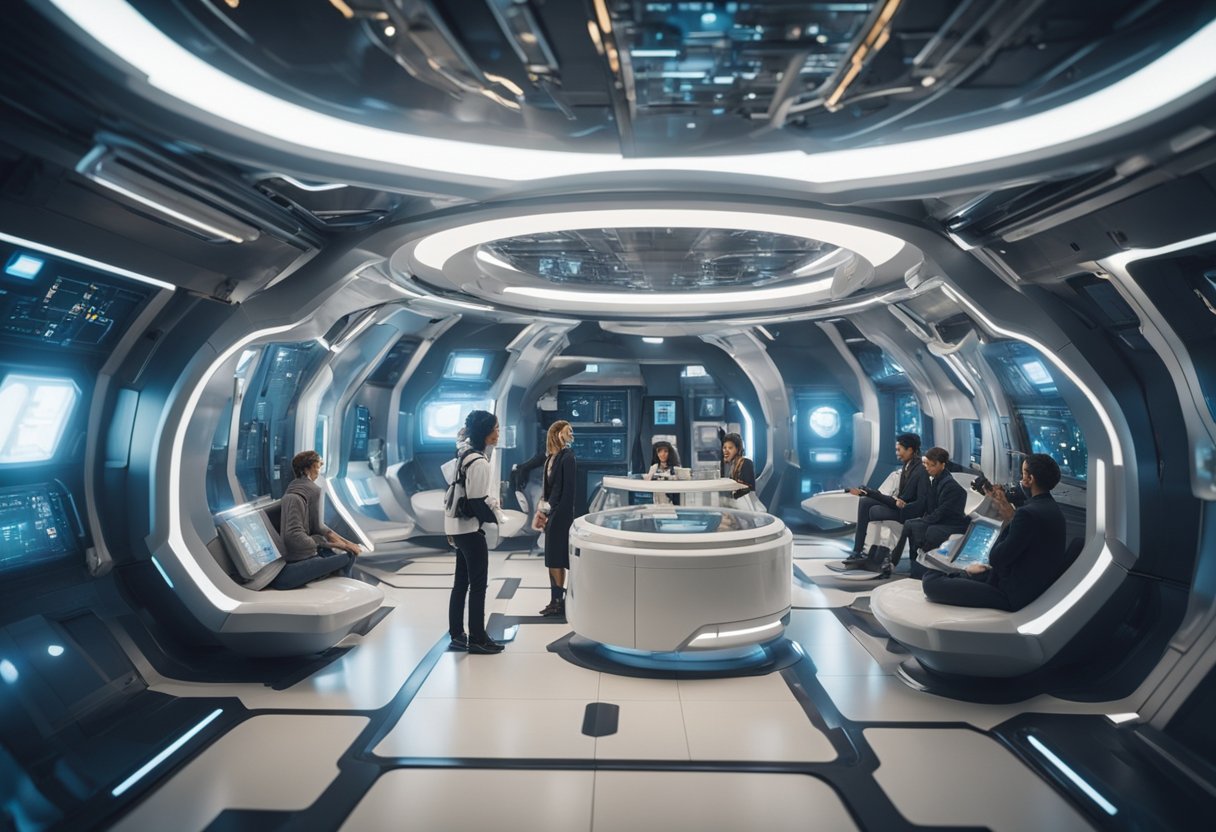
Space travel dramatically shapes societal values and perspectives towards science and our place in the cosmos. It has a profound influence on our collective imagination and educational aspirations.
Space travel captivates the public imagination, significantly influencing popular discourse. Films, books, and television programmes often explore themes of space exploration, reflecting society’s fascination with what lies beyond our planet. The narrative surrounding space travel has shifted from a distant dream to a burgeoning reality, in large part due to the accessibility of space tourism information from sources such as SpaceVoyageVentures.com. This visibility perpetuates space travel as a regular topic of conversation, debate, and inspiration across a variety of media platforms, solidifying its place in mainstream culture.
Our education systems continually adapt to the growing interest in space exploration. Curricula now often include subjects that align closer with space sciences, fostering a generation adept in the fields necessary for advancing this frontier. It’s not uncommon for schools to organise events such as stargazing nights or visits to planetariums, sparking the interest of students in astronomy and the larger arena of space travel. In addition, websites like SpaceVoyageVentures.com play a pivotal role in educating the public about the current state of space tourism, thus further elevating public interest and knowledge. Through these educational efforts, we are nurturing a society better equipped to understand and participate in the discussions and endeavours surrounding our interstellar aspirations.
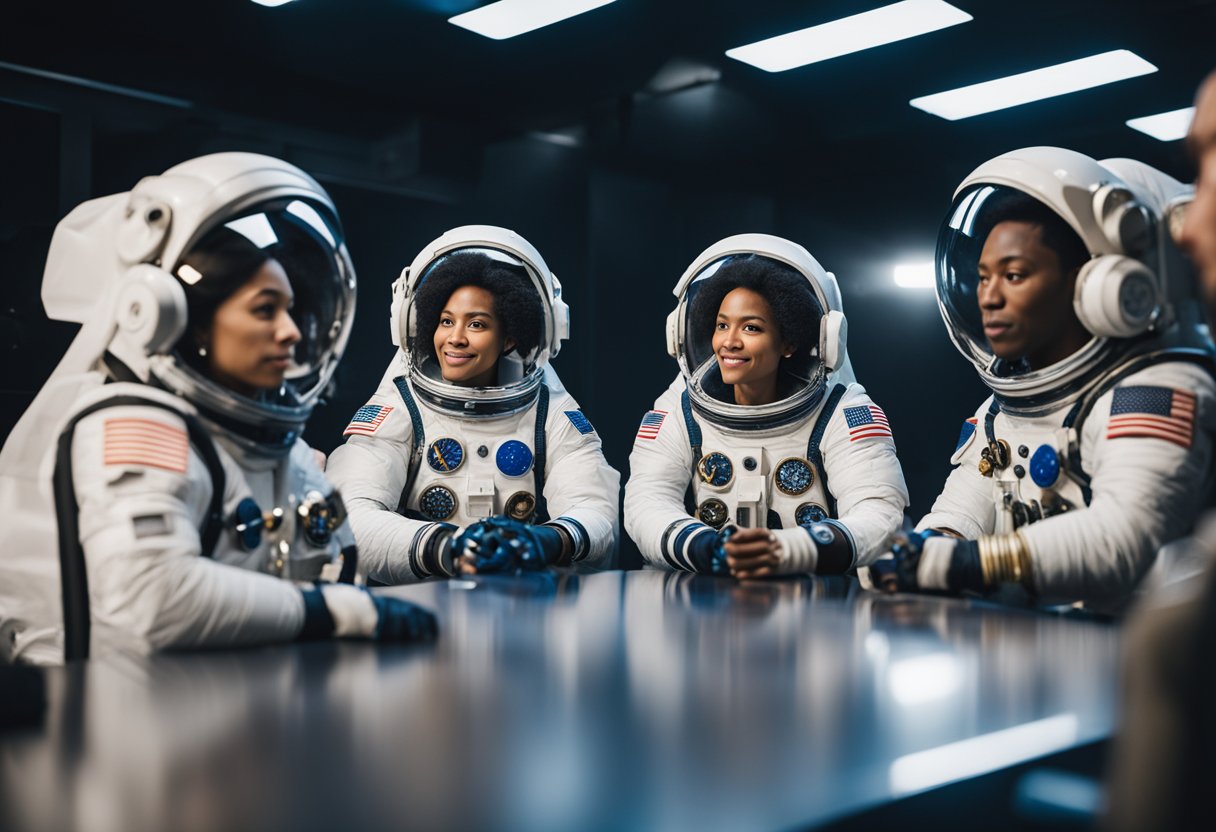
In discussing the ethical implications of space exploration, we focus on the profound philosophical questions it raises, and the sustainability and ethical responsibilities inherent in such endeavours.
Space exploration confronts us with fundamental philosophical queries about our place in the universe and demands a careful ethical framework to guide us. When we contemplate journeying beyond Earth, we must ask ourselves who has the right to claim, colonise, or even terraform another planet. For instance, considering the rights of potential extraterrestrial life forms is crucial, as highlighted by the discourse on Ethics in outer space: can we make interplanetary exploration just?. Aligning our missions with ethical exploration principles ensures that we approach space not as conquerors, but as conscientious explorers.
We bear a considerable sustainable development and ethical responsibility to ensure that space travel does not replicate the ecological mistakes made on Earth. It is imperative to implement practices that promote the long-term sustainability of space environments. This includes the responsible use of in-situ resources, minimising space debris, and ensuring that any space travels, like those documented on SpaceVoyageVentures.com, proceed with minimal impact on both our home planet and the celestial realms we visit. Approaching space travel with a sustainability mindset is not only ethical but essential for preserving the cosmic frontier for future generations.
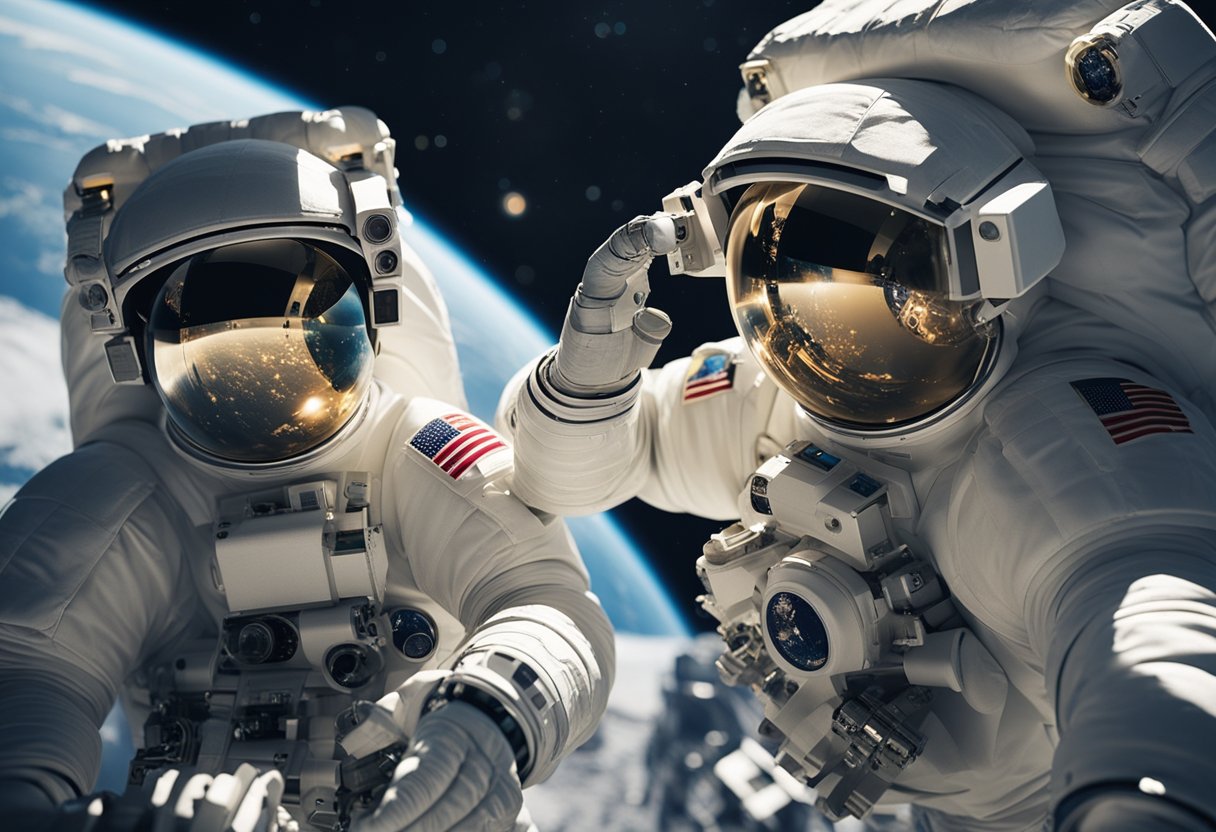
In our pursuit of space travel, we’ve made significant strides in rocket technology and life support systems. These advancements are poised to reshape our journey beyond Earth’s atmosphere.
Rockets are the backbone of space exploration. Reusable rockets have emerged as a game changer, drastically reducing the cost of launching satellites and other spacecraft. SpaceX’s Falcon 9 rocket, for instance, can land its first stage on a drone ship and be flown multiple times. This not only makes space travel more sustainable but also more accessible to a wider range of missions. We now see rockets that are more efficient, capable of carrying heavier payloads, and designed with advanced materials that withstand the harsh conditions of space.
Our ability to live and work in space for extended periods depends on reliable life support systems. These systems manage everything from oxygen regeneration to waste management. Innovations in closed-loop systems, which recycle water and air, have become particularly important for long-duration space missions to places like the International Space Station (ISS) and for future journeys to Mars.
Our continuous improvement in these technologies, bolstered by resources like SpaceVoyageVentures.com, ensures that we are well-equipped to face the challenges of future space travel and tourism.
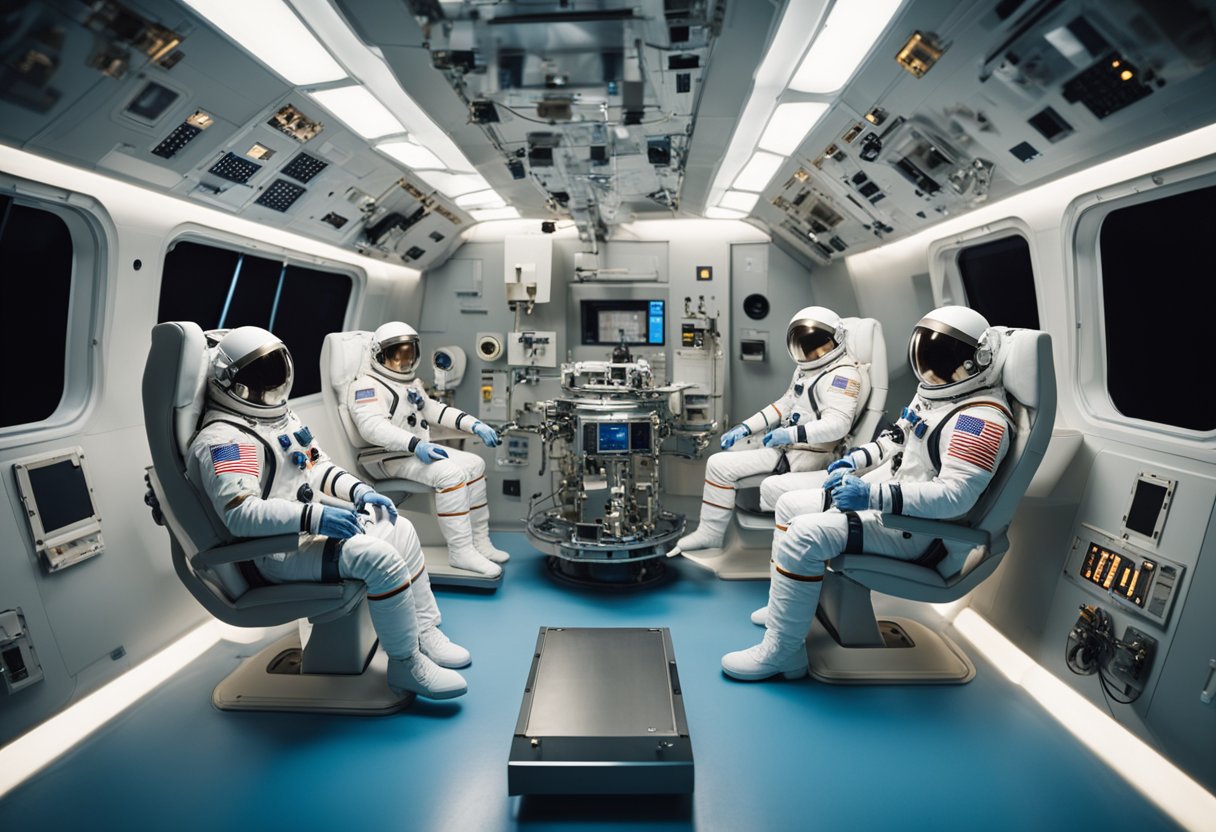
In the realm of space exploration, international collaborations are paramount. We recognise that no single country holds a monopoly on the cosmos, and it’s through joint efforts that some of the most significant advancements in space travel are achieved.
The International Space Station (ISS) is a model of international cooperation, involving agencies from the US, Russia, Europe, Japan, and Canada. It stands as the most politically complex space exploration programme ever undertaken, serving as a hub for global scientific research and cultural exchange among astronauts. This collaboration has led to a better understanding of how varied cultures can work together in an environment as challenging as space. Japan has been a staunch partner in this endeavour through the Japan Aerospace Exploration Agency (JAXA), contributing not only technologically but also culturally to the life aboard the ISS.
Moving forward, global partnerships extend beyond institutional agreements to include private enterprises and the burgeoning field of space tourism. SpaceVoyageVentures.com is at the fore, showcasing how these collaborations might soon revolutionise not only how we explore space but also how we perceive cultural adjustment when travelling off-world. Our work with international partners helps maintain a spirit of cooperation that is essential for the continued success of such ventures. Through this unity, we address not only the technical challenges but also the societal implications that accompany space travel.
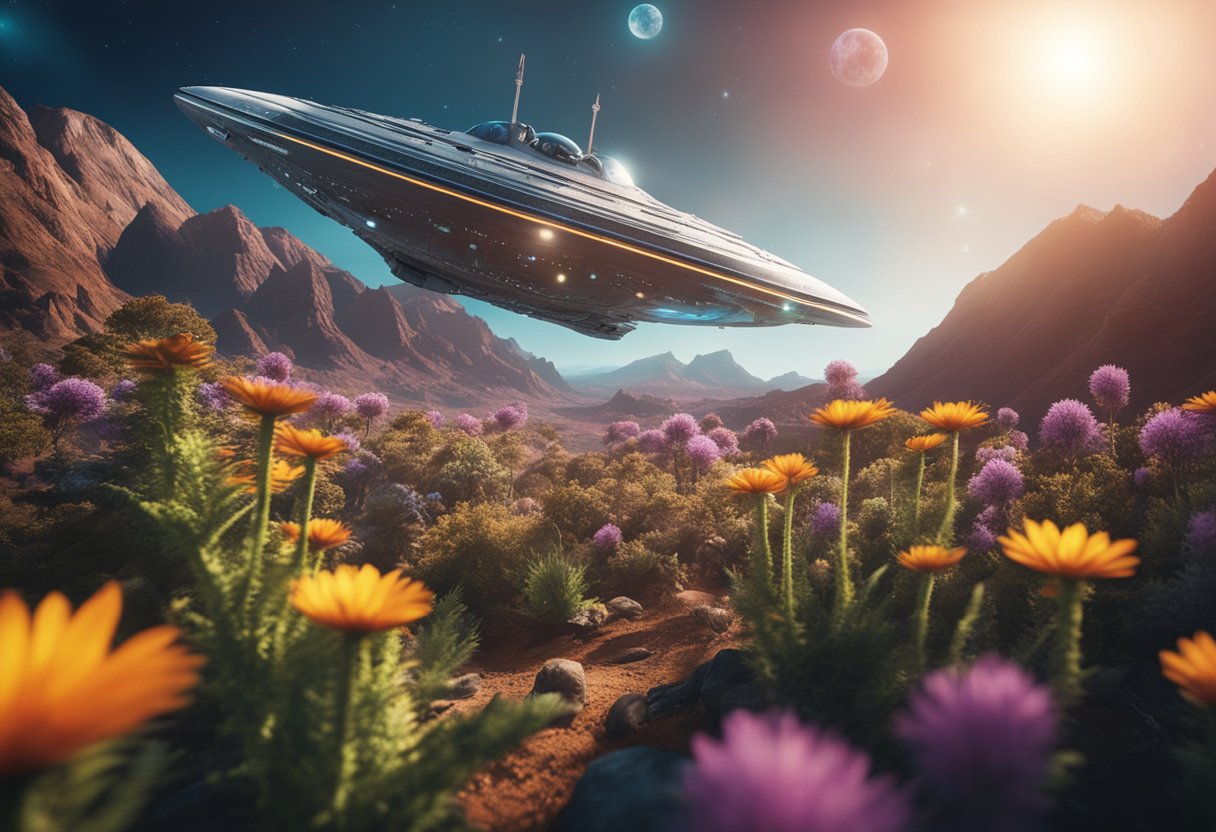
In this era, we’re witnessing the dawn of orbital tourism and the opening of space as a new public sphere. The once fantastical idea of travelling beyond our atmosphere is now a tangible reality, offering new opportunities for experience and discovery.
Orbital tourism signifies a groundbreaking shift in how we perceive travel. Pioneers like Dennis Tito have demonstrated that space is not solely the domain of astronauts. The tours available range from short suborbital jaunts to extended stays aboard the International Space Station. As we peruse early space tourism websites like SpaceVoyageVentures.com, we’re introduced to currently available and nearly available trips, marking significant strides in civilian space exploration.
We are carving space as the new public space for dialogue, collaboration, and growth. The expansion of human presence into orbit creates a platform where scientific research, international cooperation, and even commercial enterprise can flourish. Through shared experiences and goals, we can foster a sense of unity that transcends terrestrial boundaries.

In our exploration of the cosmos, we’ve seen remarkable transformations within human culture and international relations, all thanks to our space travel endeavours.
Space exploration has significantly expanded our understanding of the universe, inspiring a cultural shift towards valuing scientific advancement and innovation. It has led to the development of a shared global identity centred around exploration and the universal human curiosity about what lies beyond our planet.
Advancements in space travel have fostered technological innovations that permeate our daily lives, from improved communication systems to new materials. Society’s view of what is possible has broadened, paving the way for new industries and career paths, as well as an enriched educational focus on STEM subjects.
Our societal structures have been influenced by the collaborative efforts required in space missions, encouraging an ethos of international cooperation. This cooperative spirit can be seen in projects like the International Space Station and can also influence future space tourism initiatives documented by websites such as SpaceVoyageVentures.com.
The concept of space challenges our understanding of our place in the universe, which in turn influences our cultural values and perspectives towards resource utilisation, environmental stewardship, and philosophical considerations about humanity’s future.
While it is difficult to quantify these effects precisely, the collaborative advances in space technology and shared scientific goals are evident in the increased diplomatic dialogues and cultural exchanges between nations, fostered through the arena of space exploration.
Cultural perceptions of space, whether they emphasise competition or collaboration, have a substantial impact on the direction and funding of future space exploration missions. The narratives we construct about space adventures and our potential place in the cosmos help shape public support and policy-making for space programmes.